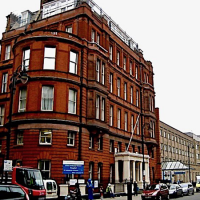Drug allergy
Dr Lee Noimark - Paediatric allergy & immunology
Created on: 11-13-2012
Updated on: 09-05-2023
Edited by: Sophie Kennedy
What is a drug allergy?
Drug allergies are the immune system’s response to certain drugs where drugs or medications are mistakenly perceived as harmful invaders. The body responds with certain chemicals and releases large amounts of histamine to destroy the invaders, causing symptoms such as a skin rash or nausea.

What are the signs of a drug allergy?
Symptoms of drug allergies can often be confused with the side effects of the drugs themselves but an allergic reaction can cause specific symptoms including the following:
- Hives
- Itching of the skin and eyes
- Skin rash
- Swelling of the lips, tongue and face
- Congestion
Sometimes if the allergy is more aggressive it can cause anaphylaxis, which causes shortness of breath, blueness of the skin, symptoms of urgency, abdominal pain, confusion, diarrhoea, dizziness, fainting and palpitations.
How are drug allergies diagnosed?
To diagnose a drug allergy, your doctor will need to know about your medical history and will examine your symptoms. A skin test can be used to test for an allergy to penicillin.
However, if you have had a very bad reaction to a certain drug, your doctor will simply rule out that specific drug from your treatment plan going forward.
What causes drug allergies?
Drug allergies are caused when the body’s immune system reacts defensively to certain drugs. The most common drug allergies are to penicillin and antibiotics. Other drugs that commonly cause allergic reactions include, sulfa drugs, barbiturates and anti-seizure medications.
What to do if you have a drug allergy
The first step is to control the symptoms, which involves using antihistamines or corticosteroids to alleviate any rashes, hives and itching. Bronchodilators may be prescribed to widen the airways and can be used for coughing and lung congestion. If someone experiences anaphylaxis, they may need a shot of epinephrine and will require immediate emergency care.
Following treatment for any acute symptoms, desensitisation can be used in the future to treat allergies that people have to certain drugs. This involves being exposed to tiny amounts of penicillin, for example, and increasing the dosage as your body becomes more desensitised to the drug. This is only necessary if there is no other drug to treat your health problem.
If you have a drug allergy, it’s a good idea to carry a card or wear a bracelet or tag to specify what allergies you have in case of an emergency.






